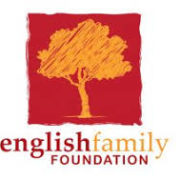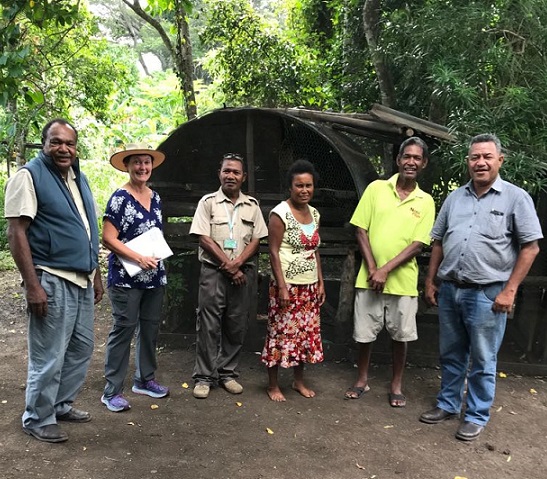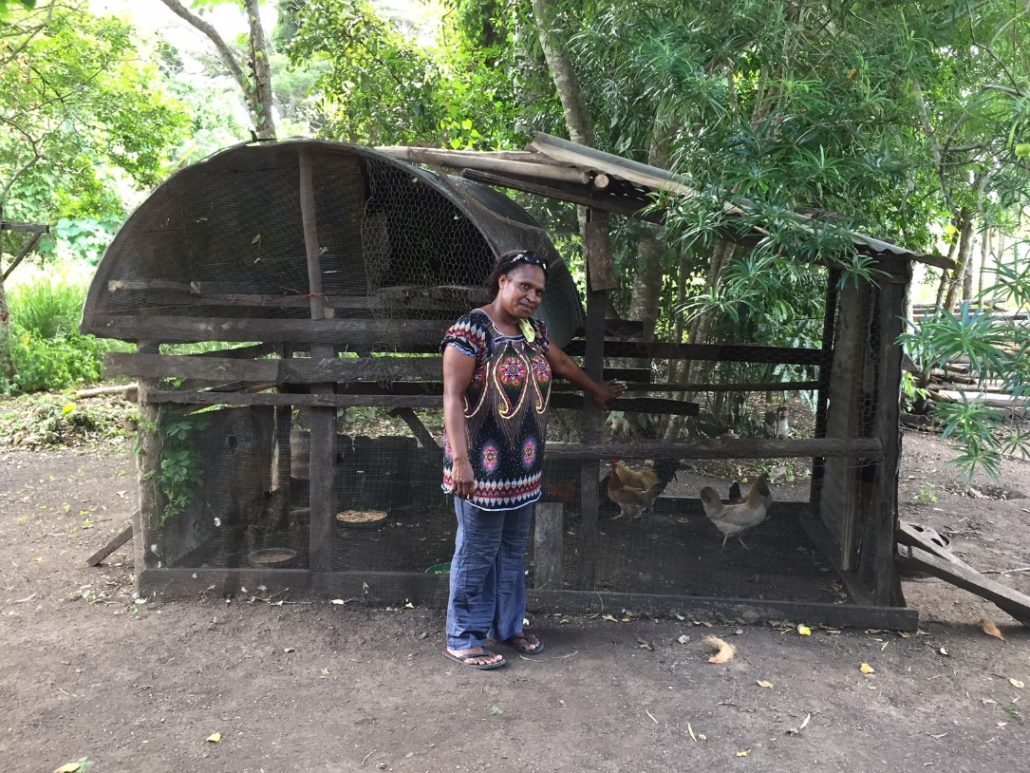Kyeema undertakes feasibility study to set up village chicken breeding and training centres in PNG
With the financial support from The English Family Foundation in 2019, we undertook a scoping study visit to Papua New Guinea (PNG) to determine the feasibility of setting up village chicken breeding and training centres in Central Province. To gain a better understanding of the need and support for the proposed project, we held meetings with senior government officials, farmers, women’s agricultural groups, innovative businesses working in the logistics/marketing space, PNG regulatory authorities and managers of Australian government funding programs in PNG.
The problem
It is estimated that childhood stunting prevalence in PNG is 49.5% (Global Nutrition Report, 2016), which is the fourth highest rate in the world. Improved backyard (village) chicken keeping is an ideal solution to dietary shortages and dwindling wild food sources. Poultry ranks second to seafood as the most important protein source for South Pacific Nations. Unsuitable hybrid chickens imported from New Zealand require expensive housing and processed food that local people can’t afford. These imported chickens are relatively heat intolerant, do not thrive and do not go broody, unlike the local indigenous chicken. Local breed production is currently constrained by lack of proper husbandry practices and suitable breeding stock
The proposed local solution
Village farmers have well-adapted local breeds, but they are not very productive as they are not kept in formalised farm/breeding environments. Because of this, flocks are small and chicks are almost never available for sale. These local chickens are an extremely valuable resource right across the Pacific Islands as they carry ancient genetics from the wild chickens brought by the original people who migrated from Asia thousands of years ago. They are more resilient in the local environment and are able to reproduce well on a local diet, so conservation and development of these valuable chickens is also a necessary priority.
The proposed activity encompasses establishment of breeding and training centres across the country and extensive training activities to ensure the specialised skills needed for this work are provided, so that improved village poultry keeping and conservation of indigenous chickens can be sustained. Localising the industry, at least to meet rural community demand, will increase food security and prosperity for Papua New Guineans.
From left to right: Farm visit inn Central Province with Extension officer, Michael Aisi; our CEO, Celia Grenning; farmers from Central Province; and the Provincial Advisor for Agriculture and Livestock, Kila Gege.
Grace, Central Province Extension worker, showing locally constructed chicken house with village chickens.
The way forward
The overwhelming conclusion from this trip was that this project showed the potential to generate incomes and better nutrition for households in PNG. Raising local poultry stocks could tap into a lucrative market and support was showed by the government and community.





